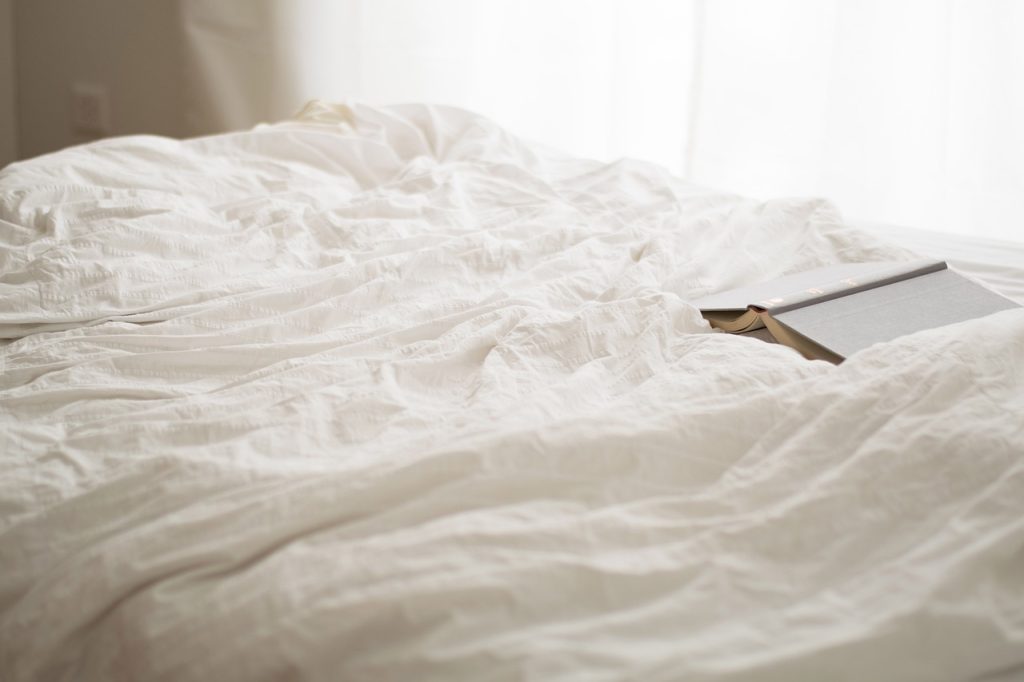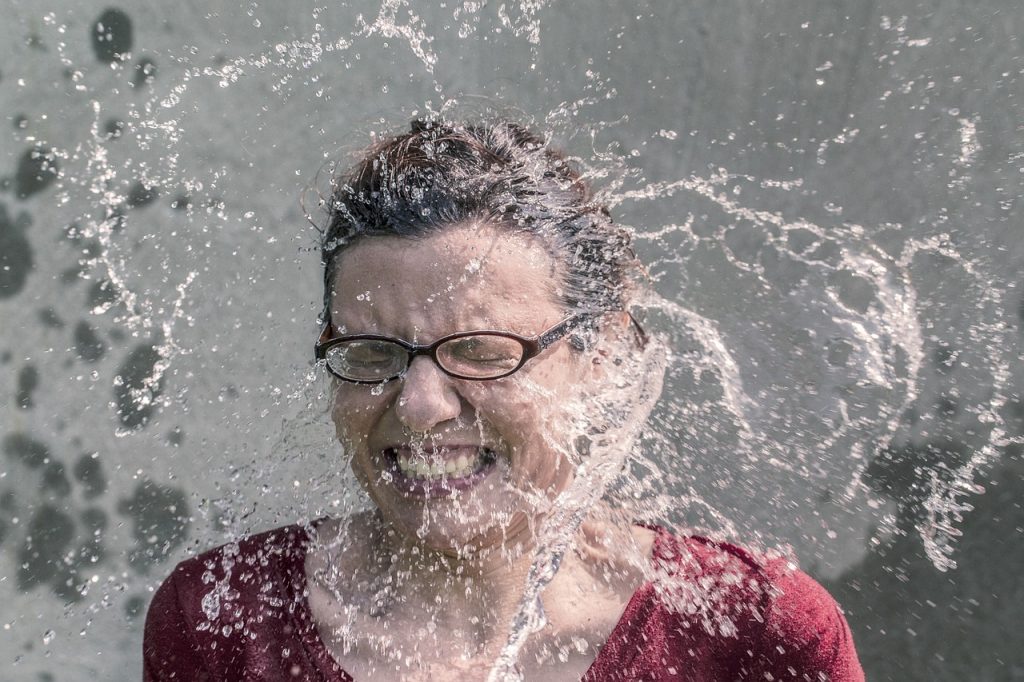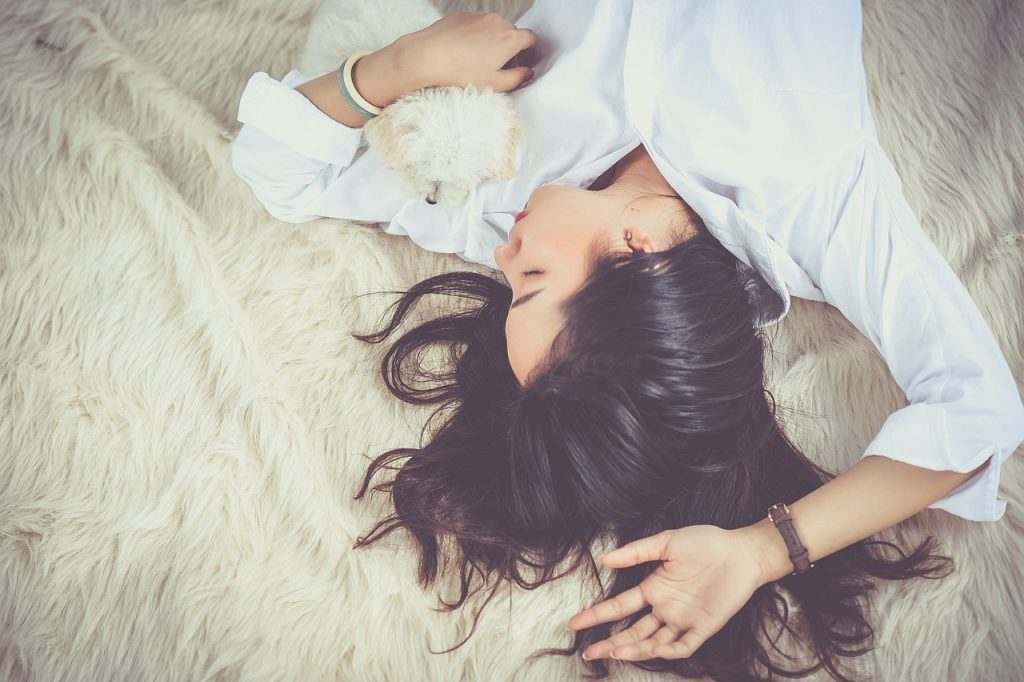Summer is in full swing and even breaking records this year in the UK and whilst many of us love the sun and the warm weather can render sleeping in hot summer nights a difficult task. With recent heat waves pushing summer temperatures to heights of 38 degrees in some parts of the country we at HomeSpace Direct recognise that this can be one of the hardest times to get a good night’s sleep and have compiled some basic tips on how to ensure you still get the optimum level of sleep and keep cool this summer.
1) Regulate the temperature of your bedroom
It may seem obvious to keep your bedroom as cool as possible but some methods of doing so may not be completely self explanatory; if your bedroom is positioned on the side of your house that receives the most sun consider leaving the curtains or blinds drawn throughout the day to block out the heat. This can even apply to keeping your windows shut to keep out hot air but make sure to open up the windows before going to bed for a while to let air in. Black-out and thermal curtain sets can also help to block out the sun.
2) Use the right bedding
Using thinner sheets and taking your duvet out of your duvet cover are good ways to reduce heat in bed. Having a winter and a summer bedding set is a great idea to control your temperature at night.
Cotton is also much cooler and more breathable than manmade fabrics and purchasing high quality cotton bedding will make the difference. Look for cotton with a low thread count as that will make the most breathable bedding. Stay away from polyester bedding – this makes you hot at the best of times, and really no good on hot nights.

3) Stay hydrated
Dehydration can be a big issue in weather this hot so it’s always a good idea to drink a lot of water throughout the day whilst being careful not to drink too much approaching bedtime so as to avoid waking up for the toilet during the night.
Drinking a lot doesn’t mean drink anything though; drinking large amounts of soft drinks could lead to a high caffeine intake resulting in trouble sleeping. Drinking more alcohol (as many of us do when the weather gets nice) is also not considered a good idea; whilst it can help us fall asleep initially it often results in waking up in the middle of the night and generally worse sleep. Both Caffeine and alcohol increase dehydration and that can be a leading cause of insomnia.

4) Keep to the same routine
Whilst a quick nap in the sun might seem relaxing, interrupting your sleep pattern can be detrimental to your sleep at night; having a regulated sleep pattern can help sleep in general. Try to go to bed at the same time each night and wake up at the same time each morning.
5) Things you can use to cool down
Using a fan to keep cool
Utilizing fans can be a great way of keeping your room cool, make sure the door or even windows are open to allow for airflow and if this isn’t enough placing a tray of ice cubes in front of the fan to cool the air blown around the room works like DIY air conditioning.
If you struggle to sleep with the sound of a fan, taking a cool or lukewarm bath/ shower before bed can help. Don’t take hot baths/showers as this raises body temperature.
Using cool water to cool you down

Using a water spray on your face and body can help cool you down and is useful to keep by the side of your bed.
Applying wet cloths to the skin or wearing wristbands soaked in cool water is a good way to cool down, as well as soaking your feet in cool or lukewarm water before getting in bed; heat is lost quicker through your extremities (feet and head) and wetting your hair can also help. In a similar way you could try using a hot water bottle filled with cold water and pressing it against pulse points (neck, wrists, back of the knees and ankles). A tied off sock filled with rice and placed in the freezer can also be used as a DIY solution if you don’t own a hot water bottle. You could even try putting bed sheets in a plastic bag and placing them in the freezer for a short amount of time to make your whole bed ice cool.
Dampening sheets slightly before getting in bed can keep you cooler initially and help you get to sleep although some research suggests adding liquid to your bed in this way or by putting your sheets in the freezer can mean the liquid will warm up through the night and cause uncomfortable heat.
6) Turn off plug sockets
You’d be surprised how much heat a plug socket can produce, try turning these off all around your house particularly where you sleep and try not to keep too many electronic devices running or charging either.
7) Keep lights off to keep cool
Keeping lights out in your house may seem an obvious way to avoid unnecessary heat but it is an easy tip to forget and every little helps when trying to maintain a lower temperature in your house.

8) Pyjamas
Wearing fewer clothes is not necessarily a better idea in high temperatures and high quality but loose fitting cotton pyjamas are best advised as these help to soak up sweat rather than leaving it on the body.
9) Eat cooler foods
Apart from it not being a good idea to use your oven too excessively when your house is too warm what you are eating may seem irrelevant to how warm you are. Contrary to this, cooler room temperature meals like salads are more advisable with spicy foods and steaks being a bad idea. In fact vegetarian meals in general should be considered as the body produces more heat after eating meats than fruit and vegetables.

10) Sleep downstairs
Heat rises so if all else fails and none of these tips make the heat any less bearable you could try sleeping downstairs as this should be the cooler part of your house.
Though here in Britain heat waves are rare the lack of air conditioning can make sleeping particularly punishing in the humid heat. Don’t be caught out and tired all day and try some of these tips to make sure you get a healthy 8 hours sleep.
If none of this helps the British weather is sure to return to its usual grey self and enable you to catch up on that much needed sleep soon.




